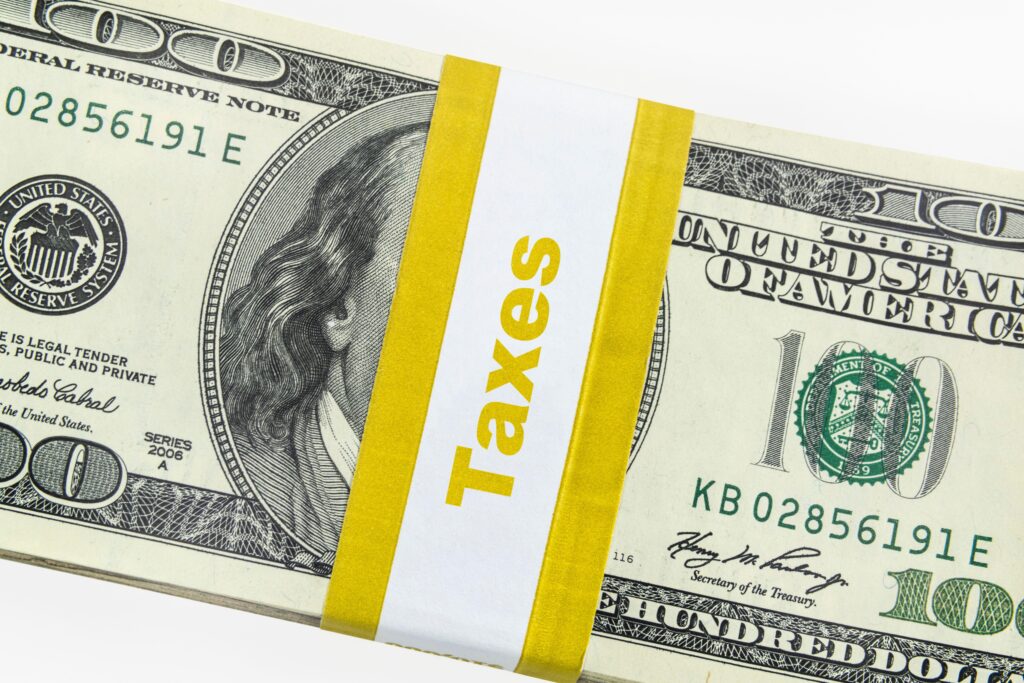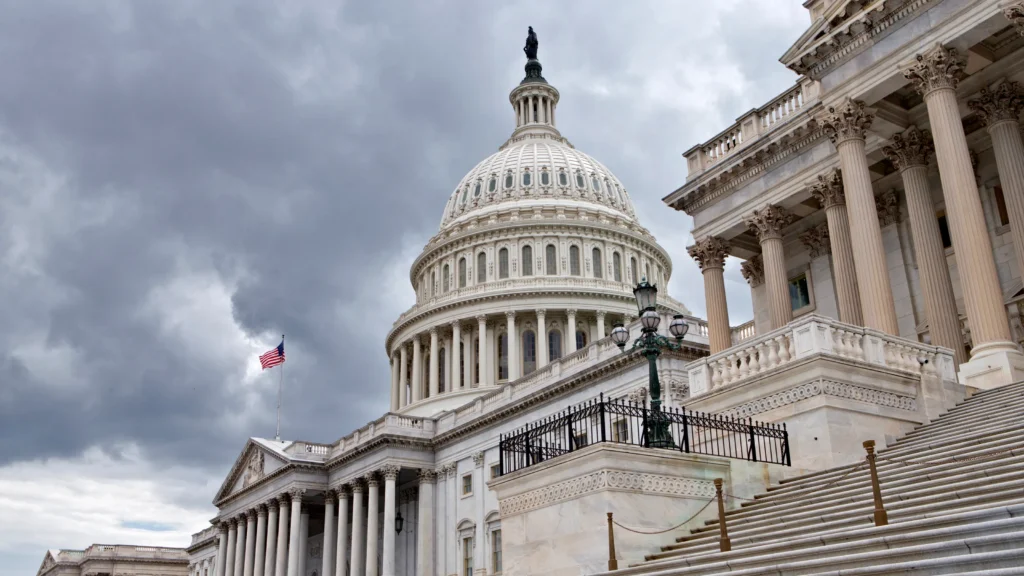Analysis: Tax Change in ‘Big Beautiful Bill’ Leaves Gamblers, Operators At A Loss

Rep. Diana Titus (D-Nev.) has earned bi-partisan sponsorship for legislation that would reverse a change in the tax code that would restore the full 100% deduction for gambling losses.
On Tuesday, she announced that Rep. Steven Horsford (D-Nev.), Rep. Jeff Van Drew (R-N.J.), and Rep. Mark Amodei (R-Nev.) put their names on the bill she dropped Monday.
Fireworks erupted across the gambling world over the July 4 holiday with the passage of President Trump’s so-called “Big Beautiful Bill,” signed into law on Independence Day.
One provision set gambling social media ablaze: a change in the deductibility of gambling losses.
The new law limits the deductibility of gambling losses to 90% of winnings. That means even if a gambler “breaks even” in a tax year, they’ll still owe taxes on 10% of their winnings. It left both bettors and stakeholders rattled. Titus's “FAIR Bet Act” bill would restore the law that allowed gamblers to deduct 100% of their losses up to winnings.
Titus's “FAIR Bet Act” bill would restore the law that allowed gamblers to deduct 100% of their losses up to winnings—a move welcomed by users of betting apps, who are concerned about higher tax liabilities under the new 90% deduction cap.
Promo Code: BOOKIES
One must now lose 110% of their winnings to fully avoid tax liability. This change could result in gamblers owing taxes on money they didn’t earn.
For example, someone who wins and loses $2 million in the same year would still owe taxes on $200,000 in phantom income.
If someone wins $100,000 and loses $100,000, they will owe income taxes on $10,000.
You can do the math for your own situation.
This rule does not impact those who take the standard deduction when filing their tax returns. Their winnings.
As a result, many gamblers are now rethinking their betting strategy, aiming to not only win but to limit their tax exposure.
The tax change shared the gambling spotlight during a wild week that saw sweepstakes suites banned in New Jersey and Louisiana, the California Attorney General issue a finding in which he deemed Daily Fantasy Sports sites illegal, and news broke that pitcher Luis Ortiz is under investigation by MLB after IC360 flagged irregular action on pair of pitches he threw in June.
Tax Code Change Takes Effect in 2026

The tax change builds on updates made to Section 165(d) of the IRS code under the 2017 TCJA Act. That law combines operating expenses and gambling losses into one category. Professional gamblers can now only deduct expenses combined with losses up to 90% of winnings.
The new provision takes effect for the 2026 tax year, meaning 2025 filings remain unaffected.
But the ripple effects go beyond the whales on the Las Vegas Strip.
Nevada-based tax professional, Enrolled Agent, and poker player Russell Fox posted the following on X:
“Yes, if this law stays for 2026, high-stakes gambling will be hurt. But so will the average gambler who 'gets lucky.' Vegas was built on the dream, and if that dream is removed (or drastically lessened) by a bad law, Vegas will be hurt.”
Poker Players Feel Pain
Poker players have been especially vocal. Many argue poker is as much a game of skill as chance. But beyond that debate, poker pros face higher costs traveling to tournaments.
Professional player Phil Galfond shared his thoughts with 152,000+ followers on X. His July 1 video, which breaks down the provision, has garnered over 3.7 million views. In another post, he warned that the law could drive both casual and serious players to offshore or illegal gambling sites.
Industry critics also point to the unfairness of the law compared to how other professions deduct business or investment losses.
Joe Brennan Jr., co-founder of Prime Sportsbook, posted on X
“Been thinking how like ‘taxing unrealized capital gains’ this proposed Federal gambling tax change is, where someone may receive a tax bill when no actual profit has been made. Doesn’t taxing folks for money they didn’t make seem so obviously wrong?”
Industry Caught Off Guard By Tax Change

The deduction cap did not appear in the version passed by the House in May. It quietly landed in a 549-page Senate Finance Committee report from Sen. Mike Crapo (R-Idaho) on June 16.
The provision blindsided major industry stakeholders. Lobbyists either missed the provision entirely or failed to grasp its consequences. Public reaction from the gambling world only came after the bill became law.
Titus didn’t announce her intention to submit the “Fair Accounting for Income Realized from Betting Earnings Taxation” until Friday.
Promo Code: BOOKIES20X
But the chances of a standalone bill passing the GOP-controlled House and clearing the Senate's 60-vote filibuster threshold are nearly zero, even with bi-partisan support in terms of co-sponsorship.
The most realistic chance for repeal would be via a bipartisan amendment—likely from the same Nevada or New Jersey lawmakers—attached to a future reconciliation bill this fall.
AGA Applauds And Backpedals
The passage of the One Big Beautiful Bill Act significantly enhances our industry’s ability to sustain quality jobs and deliver economic benefits — and we look forward to President Trump’s expected signature. pic.twitter.com/gEvfABL665
— American Gaming Association (@AmericanGaming) July 3, 2025

After the House passed the bill by a 218-214 vote on July 3, the American Gaming Association praised its passage in a social media post, saying the law “enhanced” the industry’s ability to support jobs and economic growth.
The AGA added it would “work closely with Congress in the coming months to address the changes to the wagering deduction losses and further modernize the tax code.”
After 25 replies, the AGA blocked comments on the post.
Major sports books and casino operators have been silent in public on both the overall bill and the specific change in deductions. Trump has enjoyed support from gaming operators. Perhaps they will be able to leverage that into a change in this law before it takes effect.
Then again, there’s always Elon Musk’s new “America” Party.
As always, consult your tax advisor.
Promo Code: BOOKIES
About the Author

Bill Speros is an award-winning journalist and editor whose career includes stops at USA Today Sports Network / Golfweek, Cox Media, ESPN, Orlando Sentinel and Denver Post.
Comments